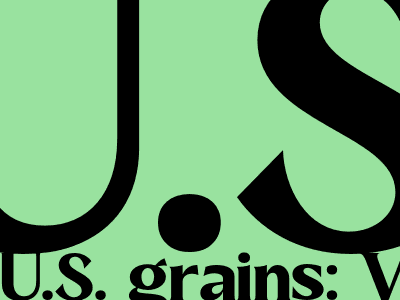
U.S. Grains: Wheat Rallies as Lifting of Ukraine Missile Restrictions Sparks Fears of War Escalation
Markets on Edge as Specter of Widening Conflict Looms
Surging Prices Reflect Heightened Risk Premiums
The U.S. grains market is experiencing significant volatility as the lifting of missile restrictions in Ukraine raises concerns over a potential escalation of the ongoing conflict. Wheat prices have rallied sharply, reflecting heightened risk premiums and uncertainty surrounding global grain supplies.
The Biden administration recently announced that it would provide Ukraine with long-range missile systems. This move has raised fears among some analysts that Russia may retaliate, leading to a broader conflict with wider geopolitical implications.
The conflict in Ukraine has already disrupted global grain exports, with Russia and Ukraine being major suppliers of wheat and other grains. The missile restrictions had limited Ukraine's ability to export grain from its Black Sea ports, exacerbating supply concerns.
The lifting of these restrictions could potentially increase grain exports from Ukraine, but it also raises the risk of escalation. If the conflict widens, it could further disrupt grain supplies and send prices even higher.
Market Impact
Wheat prices have surged in response to the news. On the Chicago Board of Trade, the benchmark wheat futures contract recently jumped by over 6%, reaching its highest level since March.
Other grains have also been affected, with corn and soybeans seeing more modest gains. The volatility in the grains market is likely to continue until there is greater clarity on the situation in Ukraine.
Outlook Uncertain
The outlook for the grains market remains highly uncertain. The course of the conflict in Ukraine will be the key factor determining the trajectory of prices.
If the conflict escalates, it could lead to further disruptions in grain supplies and even higher prices. However, if tensions can be de-escalated, the market may stabilize and prices could ease.
Implications for Consumers
The rising cost of grains is likely to have implications for consumers. Higher grain prices typically lead to higher food prices, particularly for bread, pasta, and other grain-based products.
Consumers may need to brace for higher food costs in the coming months if the conflict in Ukraine continues to disrupt global grain supplies.